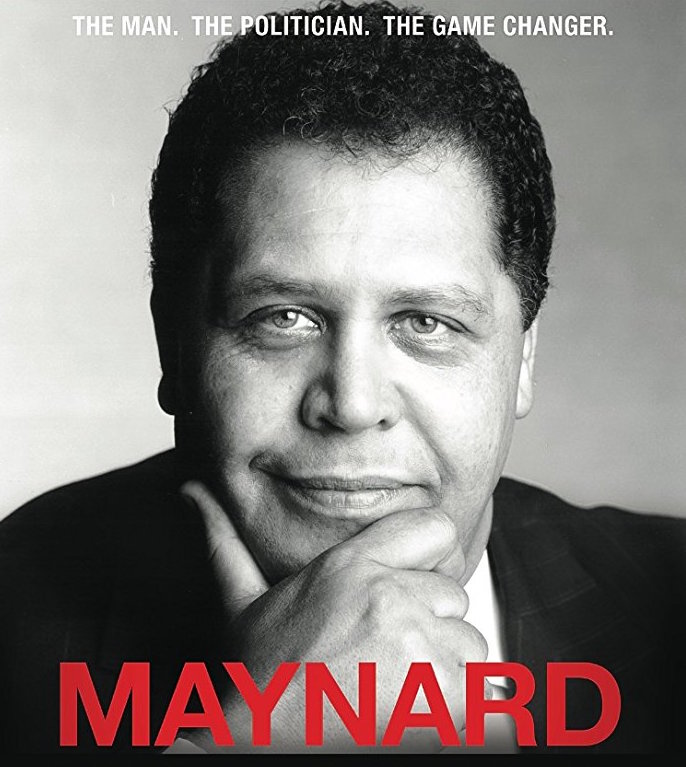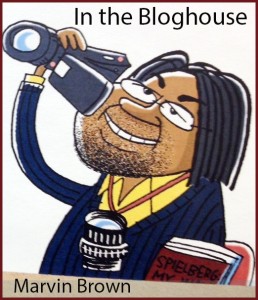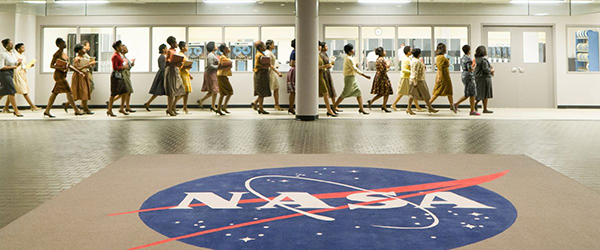Maynard (2017)
Unrated

Auburn Avenue Films
On the night Barack Obama was elected president of United State of America I remember looking at my sleeping infant daughter while processing my unique place in time where I stood at an exact moment of before and after. The morning before, I awoke in a country in which it was improbable to think the 44th person elected to the highest position in the land could be anything but white and male. The morning after, my daughter and I awoke in a country that would be lead for the next eight years by someone who looked like us.
 I thought of this moment as I watched Maynard, a documentary of the first black mayor of a major southern city. The parallel of Maynard Jackson’s and Barack Obama’s moments certainly isn’t lost to history or the filmmakers.
I thought of this moment as I watched Maynard, a documentary of the first black mayor of a major southern city. The parallel of Maynard Jackson’s and Barack Obama’s moments certainly isn’t lost to history or the filmmakers.
Helmed by editor-turned-director Sam Pollard, Maynard is refreshingly uncluttered, a straight through-line depicting Jackson’s early academic successes; his civil rights linage (his grandfather was famed movement leader John Wesley Dobbs); his foray into law and politics; his rise; his retirement; his comeback and untimely death. To be sure, we get standard archival footage, still photographs, newspaper headlines and talking heads, but the film vibrates with a sense of the era—its roiling racial politics, its music, the clothes.
CHECK OUT MY INTERVIEW WITH DIRECTOR SAM POLLARD
Maynard Holbrook Jackson Jr., tall and broad, uses carefully chosen words, commands audiences with his articulate speeches and forthright assertions. Sound familiar? He graduated from Morehouse Collage at 18 and eventually earned a law degree. Although he was delivered an early election defeat in his run for the U.S. Senate, Jackson dusted himself off and become vice mayor of Atlanta, eventually repositioning himself for a mayoral run. Maynard offers a unique look into southern politics. As vice mayor, Jackson’s run for mayor pit him against incumbent and colleague Sam Massell. It was a bruising affair that ended with Jackson’s election as mayor of Atlanta. That Massell is still alive and Pollard gets him on camera to relitigate the race is astonishing. Some resentment bubbles up right before our eyes.
There’s fantastic footage of a portly Jackson in the ring with Muhammad Ali for a promotional boxing match. News footage and interviews of the Atlanta child murders that rocked Jackson’s second term remain potent. And Jackson’s legacy-burnishing renovation of the Atlanta airport into an international hub truly speaks to his lasting accomplishments.
Of course the path to legend can be littered with sacrifices: a divorce, a seeming disconnect from his only son, health issues and political disillusionment.
The documentary brings in heavyweights to tell the tale—famed mayors Andrew Young and Shirley Franklin, civil rights authorities Jesse Jackson and Al Sharpton, former President Bill Clinton and attorney Vernon Jordan—but it’s the voices of Jackson’s family that wring true intimacy from the proceedings. The Jackson family brought the project to Pollard and is well-represented here. Daughters Elizabeth, Brooke, Valerie and Alexandra, son Maynard III, widow Valerie and former wife Burnella all add layers to Maynard’s portrayal.
Son Maynard III is presented with sad dignity; we infer a boy trying to exist in the shadows of a mythic-like father, and a man who has fought his demons to arrive as a proud survivor. Jackson’s daughters, beautiful each, project strength and intelligence and yet, sweet vulnerability as daddy’s girls. The women who were married to Jackson provide a dignity that elucidates their critical roles in supporting Jackson’s destiny.
When we arrive at the details of Jackson’s final hours, the documentary gains power. The scene in which the news of Maynard’s untimely death reaches each of his family members is masterfully filmed and edited.
In a time of political calculations of what a legacy means and of whether it can be undone by successors, Pollard’s film assuredly reminds us that the true caretakers of a legacy can keep the flame burning.

| Marvin Brown’s Movie Review Archive






